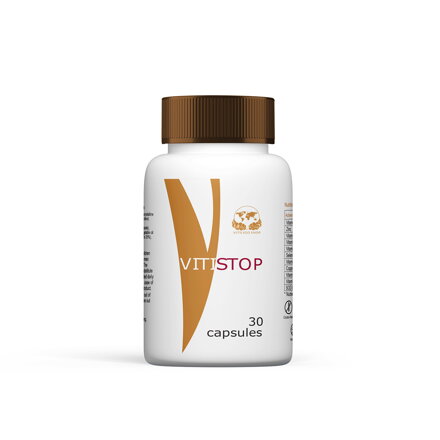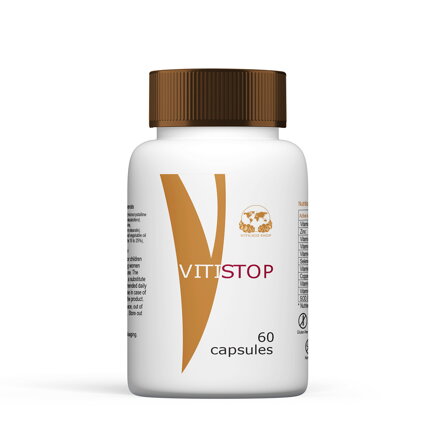Vitamins and vitiligo
The effect of vitamins on vitiligo
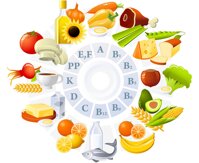
Vitamins and minerals are a key component of our body, each of which has its own unique and irreplaceable function. Their sufficiency and balance fundamentally affect the functioning of the whole body and have a direct impact on our physical and mental condition and defense against external influences.
One should draw all the necessary substances for one's life from natural products. However, there is one big "BUT".
Today's lifestyle in developed countries offers a lot of food, but unfortunately, it does not ensure a sufficient supply of basic substances. Among other things, let's face it that today's foods are no longer what they used to be. In large retail chains, we are offered chemically sprayed fruits and vegetables, which are imported from the other side of the world. This means that today's foods lose many of the substances that are necessary for our body during the transport, long-term storage and preservation of food. Therefore, it is recommended to take supplements so that we not only protect our body from diseases but also have a sufficient supply of the necessary vitamins and minerals throughout the year.
In our blog, we will focus only on vitamins that are important in the treatment of vitiligo as our skin needs an even higher dose of vitamins than other people.
What are vitamins?
Vitamins are important substances, organic compounds that, along with fats, carbohydrates and proteins, are the main components of food.
We know 13 basic vitamins:
• fat-soluble vitamins (A, D, E and K) are not excreted in the urine and can be stored in the body's fat stores. They are eliminated worse from the body and therefore their excessive intake poses a certain health risk, we can even damage our health with excessive doses of fat-soluble vitamins. There is a so-called hypervitaminosis. Therefore, if you are taking certain vitamin preparations, follow the recommended dosage. If you indulge in a lot of vegetables and fruits, feel free to skip the dose of vitamin preparations that day.
• water-soluble vitamins (B1, B2, B3, B5, B6, B7, B9, B12 and C) are the remaining vitamins that are excreted from the body. They are easily absorbed, but the body cannot store them for a long time. Due to their solubility, we lose them in the urine. We should indulge them in our body daily so that they reach all the tissues in the required amount. Well, we have to be careful here too. Very high doses e.g. Vitamin B6 are able to cause nervous system disorders and large doses of vitamin C can cause kidney stones in some people.
What are minerals?
Minerals are found in small amounts in the body and make up about 3 to 4% of body weight. According to the amount they occur in the body, we divide them into macroelements and microelements.
There are many more macroelements and they are measured in mg. Examples include magnesium, potassium, calcium, phosphorus and chlorine.
Our body also needs other microelements, although the doses of the individual elements are usually very small and are measured in micrograms. These include, for example, iodine, zinc, manganese, copper and iron.
Calcium, magnesium, iron, zinc, sodium, potassium, iodine and selenium can be included among the most important minerals for the proper functioning of the body.
The most common manifestations of vitamin and mineral deficiency in the body include:
- Decreased immunity and susceptibility to the disease
- Mental problems such as depression, anxiety, irritability, apathy
- Internal organs malfunctioning
- Deteriorated condition of skin, hair, bones, teeth
- Anemia
• Vitamin A (retinol) - enough of this vitamin affects the condition of our skin and is often considered a "pretty skin" vitamin or a "skin vitamin". It supports the renewal of the cell structure and slows down the aging processes in the body. When sunbathing, it protects the skin from the risk of cancer. It contributes to bone growth and helps maintain the proper function of the retina and respiratory tract. It also helps normal glandular function and resistance to infections as well as treat an enlarged thyroid gland.
Source:
- food of plant origin - spinach, broccoli, melon, carrot, pepper, corn, tomatoes, cabbage, peaches, apricots, mango, lettuce, peas
- food of animal origin - cod and pork liver, sea fish, fish oil, cheese, butter, egg yolk, milk.
Excess vitamin A is as harmful as it is deficient. There is no danger of overdose, but it is dangerous to exceed the recommended daily dose when taking pharmacological preparations with vitamin A.
• B vitamins represent a complex of vitamins and are generally known as B-complex (B1, B2, B3, B5, B6, B9, B12). Each of them affects a slightly different part of human health.
Vitamins are considered to be the most important:
- B1 (thiamine) - a vitamin for joy
- B2 (riboflavin) - the engine of our life
- B3 (niacin) - vitamin for strong nerves
- B4 (folic acid) - a good mood vitamin. You can read more about folic acid in our blog.
- B5 (pantothenic acid) - a vitamin for fitness
- B6 (pyridoxine) - female vitamin
- B7 (biotin) - a vitamin for beauty
- B9 (inositol) - sleep vitamin
- B12 (cobalamin) - supervitamin
Source: guts, leafy vegetables, legumes, cereal sprouts, yeast, meat, eggs, dairy products, whole grains, nuts, liver.
• Vitamin C (L-ascorbic acid) - Vitamin Regulates amino acid metabolism, maintains the strength of blood vessel walls (especially capillaries), promotes iron absorption, stimulates white blood cell production, plays a major role in the proper development of bones, teeth and cartilage and promotes collagen production. It removes the feeling of fatigue and acts against stress and depression.
Source: citrus fruits (especially kiwi), green and red peppers, broccoli, strawberries, tusks, tomatoes, rose hips, cauliflower, broccoli, parsley, chili peppers.
• Vitamin D (calciferol) - is necessary for the absorption of calcium and its storage in the bones.It is important for the production of hormones, increases the body's defenses, stimulates the activity of the thyroid gland. It calms the nerves and helps a healthy sleep, it has a positive effect on the treatment of psoriasis and vitiligo, as well as other skin diseases. The absorption of vitamin D is increased by fats or oils in food.
The most important source remains sunlight.
Source: cod liver oil, herring, mackerel, salmon, sardines in oil, tuna, margarine, eggs.
• Vitamin E (tocopherol) - is the most important antioxidant in our body, so it is used in the treatment of diseases where oxidative stress plays a major role. It increases vitality, energy and zest for life. In addition, it affects the production of red blood cells, contributes to tissue regeneration and slows down the aging process of cells and tissues, strengthens the activity of the genitals. Vitamin E plays an important role in the prevention of cardiovascular disease.
Source: cereal sprouts, cabbage, spinach, vegetable oils, nuts, soybeans, green leafy greens, wholemeal flour, eggs, fish, almonds, avocados or blackberries.
• Vitamin K (phytoquinone) has a major effect on blood clotting and in cooperation with calcium is irreplaceable in the formation and maintenance of bone mass. It is essential for vitality. Vitamin K preparations should only be used under a prescription and not for a long time.
Source: dairy products, meat, legumes, eggs, offal, cereals, fruits and other various vegetables.
• Zinc (Zincum) - is important for the immune system, protects it from infection and inflammation. It helps heal wounds and burns, for women zinc has a major effect on the quality of hair, nails and skin, in men it has an effect on testosterone levels. Zinc keeps the skin healthy and cooperates in the treatment of all skin diseases (along with B vitamins). If the body does not have enough of this mineral, depigmentation can occur and spots appear on the skin - vitiligo. It also acts as an antioxidant, increases mental abilities, calms the nervous system and helps to alleviate depression. Improves memory.
Source: liver, dark meat, egg yolks, seafood and dairy products, legumes, nuts and pumpkin seeds, whole grains, poppy, cocoa, molasses, corn, broccoli, papaya, dried figs.
• Selenium (Selenium) is the most effective in the body accompanied by vitamin E. It is a powerful antioxidant, it protects cells from oxidative damage. It is essential for the proper functioning of the immune system and thyroid gland. Selenium protects the body against cancer, especially of the lungs, colon and rectum.
Source: nuts, especially steamed nuts, offal, cheese, eggs, fish, beef and liver are the main natural sources of selenium, whole wheat bread, soy.
The combination of some of the above-mentioned vitamins also contains our Vitistop product, which was specially made to stop and repigment vitiligo.
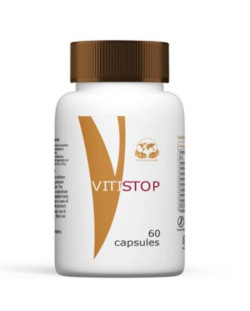 VITISTOP is a nutritional supplement against oxidative stress.
VITISTOP is a nutritional supplement against oxidative stress.
Unique tablets with a high content of key vitamins and EXTRAMEL® (Superoxide Dismutase) ingredients.
INGREDIENTS: contain the patented herbal active ingredient EXTRAMEL® in combination with vitamins (C, D3, E, B1, B5, B9, B12) and minerals (selenium, copper, zinc). Vitamin C, vitamin E, copper, selenium and zinc help protect cells from oxidative stress.
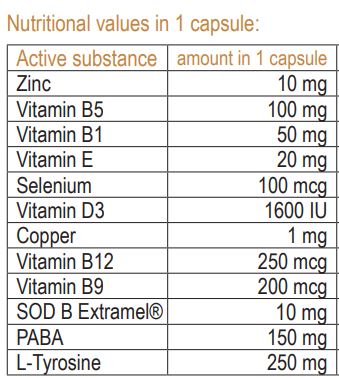
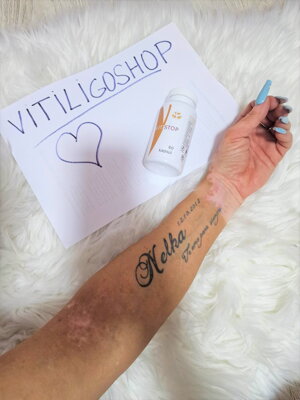
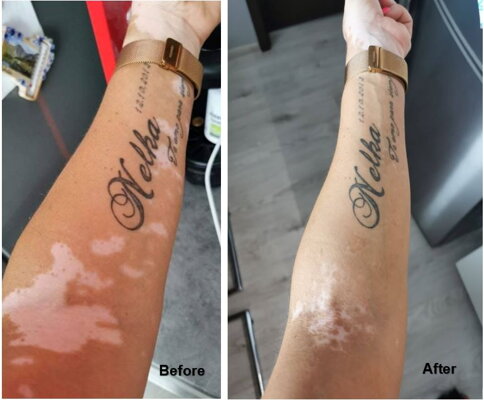
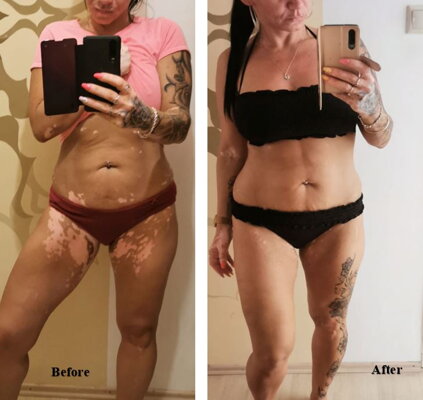
Here are some tips to reduce vitamin loss:
• Store food in a dark and cool place
• process food immediately after cleaning
• Do not cook food longer than necessary
• Do not use too much water for cooking
• cover the pot with a lid when cooking
• take advantage of the pressure cooker - the cooking time is reduced
• try steaming the vegetables
• Eat as much fresh fruit and vegetables as possible
• do not use aluminum dishes and cutlery
• prefer dark and wholemeal breads and pastries
• Add a teaspoon of olive oil to vegetable salads
• give priority to freezing food over other methods of preserving
Support your mental well-being
The psyche has a big impact on our health. We will eat healthily or give food supplements unnecessarily when we live in constant stress and hustle and bustle. Therefore, do not forget to maintain your mental well-being, because it is not for nothing that they say "In a healthy body, a healthy spirit"!
You can read more about the effect of stress on vitiligo in our blog.
And finally, as a BONUS, we have prepared an E-Book of recipes for healthy smoothies, which you can easily prepare at home. They contain all the necessary vitamins that we mentioned in our article and are important in the treatment of vitiligo.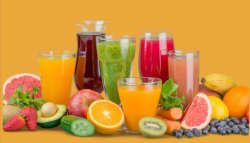
You can download our "Ebook".
We believe that we have introduced you to our key components of individual vitamins, which are helpful in the treatment of vitiligo.
We keep our fingers crossed for you!
Your Vitiligoshop
-
Add to Favourites
Vitistop "30" - New Formula
(1100021)Vitistop "30" are melanin tablets for the promotion of pigment formation. They contain a high level of antioxidants that help neutralise oxidative stress and free‑radical damage, factors associated with vitiligo.
In stock (1587 pcs)
18 €
-
Add to Favourites
TOP SEARCHED
Vitistop "60" - New Formula
(1100022)Vitistop "60" are melanin tablets for the promotion of pigment formation. They contain a high level of antioxidants that help neutralise oxidative stress and free‑radical damage, factors associated with vitiligo.
In stock (1216 pcs)
32 €
.jpg)
